What is Dengue ?
What is Dengue?
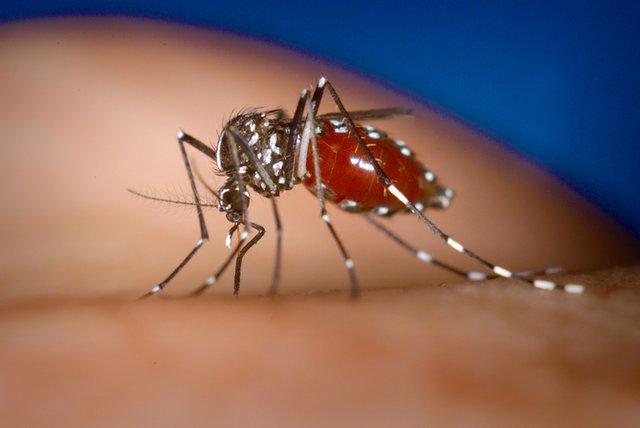
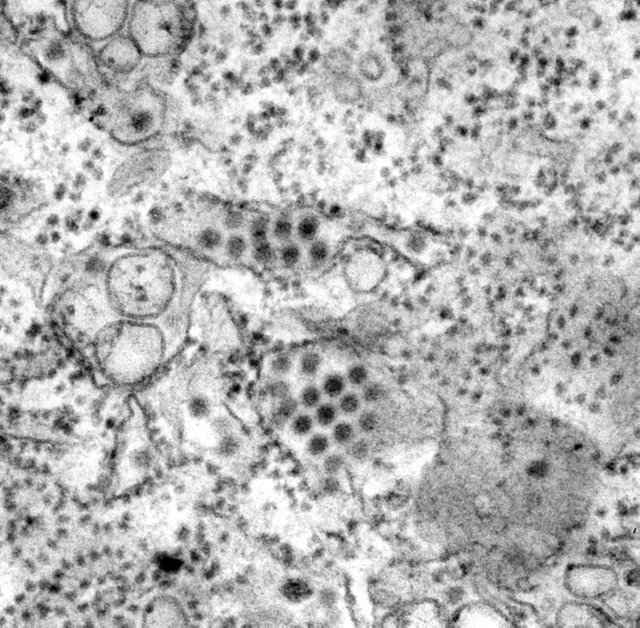
• Dengue (pronounced den' gee) is a viral disease.
• Dengue can be caused by infection with any one of four closely related dengue viruses.
• DENV 1, DENV 2, DENV 3 or DENV 4.
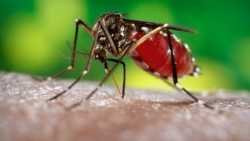
How does it spread?
The dengue viruses are transmitted to humans by the bite of an infected Aedes mosquito.
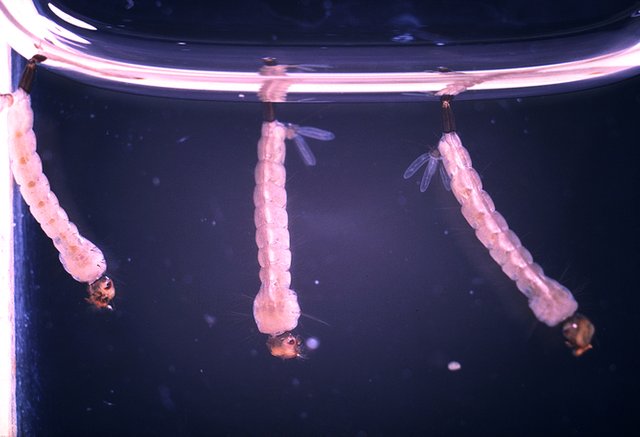
Characteristics of the Aedes Mosquito
• One distinct physical feature (black and white stripes on its body and legs) hence also called as ‘Tiger mosquito’.
• Bites during the day.
• Lays its eggs in clean, stagnant water.
Did you know?
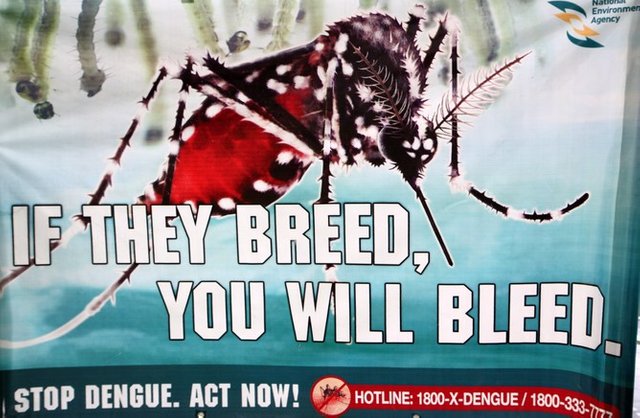
• Only the female Aedes mosquito bites as it needs the protein in blood to develop its eggs.
• The mosquito becomes infective approximately seven days after it has bitten a person carrying the virus.
• Once infected, a mosquito remains infective for life and passes on the virus to the eggs it lays.
• Peak biting time is at dawn and dusk – 2 hours after sunrise and 2 hours before sunset.
Aedes mosquito: Fast facts
• The average lifespan of an Aedes mosquito is 2 weeks.
• The mosquito can lay eggs about 3 times in its lifetime, and about 100 eggs are produced each time.
• The eggs can withstand very dry conditions (desiccation) and remain viable for many months in the absence of water.
– Repopulation will occur as soon as the eggs in the containers are flooded with water.
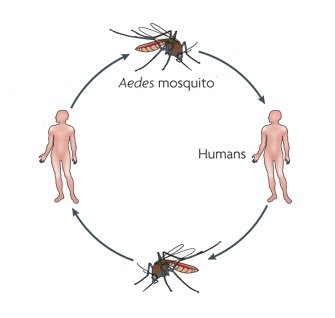
Aedes mosquito: Fast facts (contd.)
• Adult mosquitoes “usually” rests indoors in dark areas (closets, under beds, behind curtains).
• They have limited flight range – can fly an average of 400metres looking for water-filled containers to lay their eggs. This means that people, rather than mosquitoes, rapidly move the virus within and between communities and places.
• A few mosquitoes per household can produce large dengue outbreaks. The dengue mosquito does not lay eggs in ditches, drainages, canals, wetlands, rivers or lakes.
• The mosquito life cycle, from egg to larvae, pupae, and to an adult mosquito, takes 8 days and occurs in water.
• Humans develops disease after 5 – 6 days of being bitten by an infective mosquito.
What can you do to reduce risk of acquiring dengue?
PROTECT YOURSELF FROM MOSQUITO BITES
• Dengue mosquitoes bite during the day time. Highest biting intensity is about 2 hours after sunrise and before sunset.
• Wear full sleeves clothes and long dresses to cover as much of your body as possible.
• Use repellents, mosquito coils, electric vapor mats during the daytime also to prevent dengue.
• Use mosquito nets to protect children, elderly and others who may rest during the day.
Clinical description : Dengue fever (classical)
An acute onset high fever of 2-7 days duration with 2 or more of the following manifestations:
Headache (often severe)
Retro-orbital pain (severe eye pain behind eyes)
Myalgia (muscle pain) ""Arthralgia (joint pain)
Rash
Hemorrhagic manifestations: nose or gum bleed, easy bruising
All the above symptoms and signs may not be present in the patient.
What to do if you think you have dengue
Bed rest- acute phase
Cold sponging for reducing fever
X Avoid aspirin, brufen etc – these can cause gastritis, vomiting, platelet dysfunction
Paracetamol is preferable for fever management.
Oral electrolyte therapy: for excessive sweating, vomiting
• Avoid mosquito bites
– wear full sleeves; Place patient under bed net or use insect repellent on the patient while they have a fever, Put screens on windows and doors to prevent mosquitoes from coming into house.
• Consult a physician. TO TAKE PLENTY OF FLUIDS
Laboratory findings in dengue: Blood picture
• If a patient is suspected to be having dengue, the doctor may ask the patient to get a blood test done.
• Findings such as reduced platelets or an increase in blood haematocrit makes dengue more likely.
(Platelets are cells in blood that help to stop bleeding.
Haematocrit indicates the thickness of blood).
Dengue specific Tests
• Dengue specific tests done in a blood sample can confirm a diagnosis of dengue.
• There are two basic types of tests:
Detecting Dengue antigen in blood( within first 5 days of onset of symptoms): NS1
antigen based assaysDetecting Dengue antibodies in blood( after first 5 days of onset of symptoms)
Most people who suffer from dengue fever recover in 1–2 weeks time.
PREVENT DEHYDRATION
• Dehydration can occur when a person loses too much fluid (from high fevers, vomiting, or poor oral intake).
• Give plenty of fluids- ORS and juices are preferable to water
• Watch for any signs of dehydration
Decrease in urination
Few or no tears when child cries
Dry mouth, tongue or lips
Sunken eyes
Listlessness or overly agitated or confused
Fast heart beat (more than 100/min)
Cold or clammy fingers and toes
The critical period may be after 3-5 days of fever
• In a few patients, the smallest blood vessels (capillaries) may become excessively permeable (“leaky”), allowing the fluid component to escape from the blood vessels into body cavities.
• This may lead to failure of the circulatory system and shock if properly not managed with fluid resuscitation.
Can people die from dengue fever?
• People who suffer from dengue fever have no risk of death but rarely some of them may develop Dengue Hemorrhagic Fever (DHF) or Dengue Shock Syndrome(DSS).
• Patients suspected to be suffering from DHF/DSS should be admitted to a hospital without delay.
• Infants and young children are more likely than adults to develop DHF/DSS or manifestations of severe clinical illness. Parents need to be vigilant.
• With proper treatment, the patients with Dengue hemorrhagic fever and dengue shock syndrome can recover fully.
– Good treatment provided in time can save lives.
Warning signs Immediate medical attention !
*Severe abdominal pain or persistent vomiting
*Red spots or patches on the skin
*Bleeding from nose or gums
*Vomiting blood
*Black, tarry stools (feces, excrement)
*Drowsiness or irritability
*Pale, cold, or clammy skin
*Difficulty in breathing
What does the treating doctor need to do in such cases?
*Monitor progress of patients regularly at 1-2 hours interval.
*Platelet counts and haematocrit need to be monitored repeatedly to review the progress of patients.
- The doctor may advise IV fluids or platelet transfusion.
All patients do not require platelet transfusion.
Can you get dengue again after suffering from it once?
YES
• If a person has suffered from one virus, there can be a repeat occurrence of dengue if a different strain is involved subsequently.
• Being affected by one strain offers no protection against the others.
• A person could suffer from dengue more than once in her/his lifetime.
Can people suffer from dengue and not appear ill?
YES
• There are many people who are infected with the virus and do not suffer from any signs or symptoms of the disease.
• For every patient with symptoms and signs there may be 4-5 persons with no symptoms or with very mild symptoms.
Can dengue fever patient be treated at home?
• Most patients with dengue fever can be treated at home.
• They should take rest, drink plenty of fluids that are available at home and eat nutritious diet.
• Whenever available, Oral Rehydration Salt/ORS (commonly used in treating diarrhea) is preferable. Fruit juices are also good.
• It is important to look for danger signs and contact the doctor as soon as any one or more of these are found.
What is Chikungunya ?
• Chikungunya is a viral illness spread by bite of infected mosquitoes and clinically resembles dengue fever.
• The name comes from the African language meaning “that which bends up”and aptly describes the stooped appearance of sufferers with joint pain due to the disease.
How does Chikungunya spread?
• Through bite of female infected mosquitoes Aedes aegypti and Aedes albopictus.
• Mosquito usually transmits the disease by biting an infected person and then biting someone else.
– An infected person cannot spread the infection directly to other persons (i.e. it is not a contagious disease).
• Aedes aegypti mosquitoes bite during the day time. They breed in anything that holds clean water including tyres, coconut shells, flower pots, storage pans and cooling systems.
Chikungunya
Clinical signs and Symptoms
• Typical symptoms are similar to that of dengue:
sudden onset fever, severe headache, chills, nausea and vomiting, and severe joint pains.
• Most patients recover fully, but in some cases the joint pains may persist for weeks or months.
• Children less than 1 year and elderly are at greater risk of severe disease
– Underlying medical conditions have also been identified as a risk factor for poor disease outcome.
Chikungunya Management of patient
• Chikungunya is diagnosed by blood tests (ELISA).
• Symptomatic management
– adequate rest; medicines to reduce joint pains and fever. Some patients may require long term pain management medication.
• Patients should avoid further mosquito exposure, either by staying in places with screens or by using mosquito nets.
Prevention and control are entirely dependent on taking steps to avoid mosquito bites and eliminating mosquito breeding sites.
Prevent mosquito breeding
•Discard/ Destroy unused items.
•Drain out water from various containers.
•Regularly change water and clean flower vases and other items.
•Empty coolers.
•Cover water storage containers.
To stop or to slow down the dengue transmission "thermal fogging", using fogging machines is a supplemental measure.
In fogging, we should use an insecticide that has an immediate knock-down effect on adult mosquitoes.
Individual and household protection
• Wear full sleeves and full-length clothes to cover limbs.
• Repellents may be applied to exposed skin or to clothing, in strict accordance with label instructions.
• Insecticide-treated mosquito nets afford good protection for those who sleep during the day (e.g. infants, elderly).
• Household insecticide aerosol products, mosquito coils or insecticide vaporizers may also reduce biting activity.
• Household fixtures such as window and door screens and air-conditioning can also reduce biting.
Controlling Dengue and
Chikungunya is everyone’s responsibility.